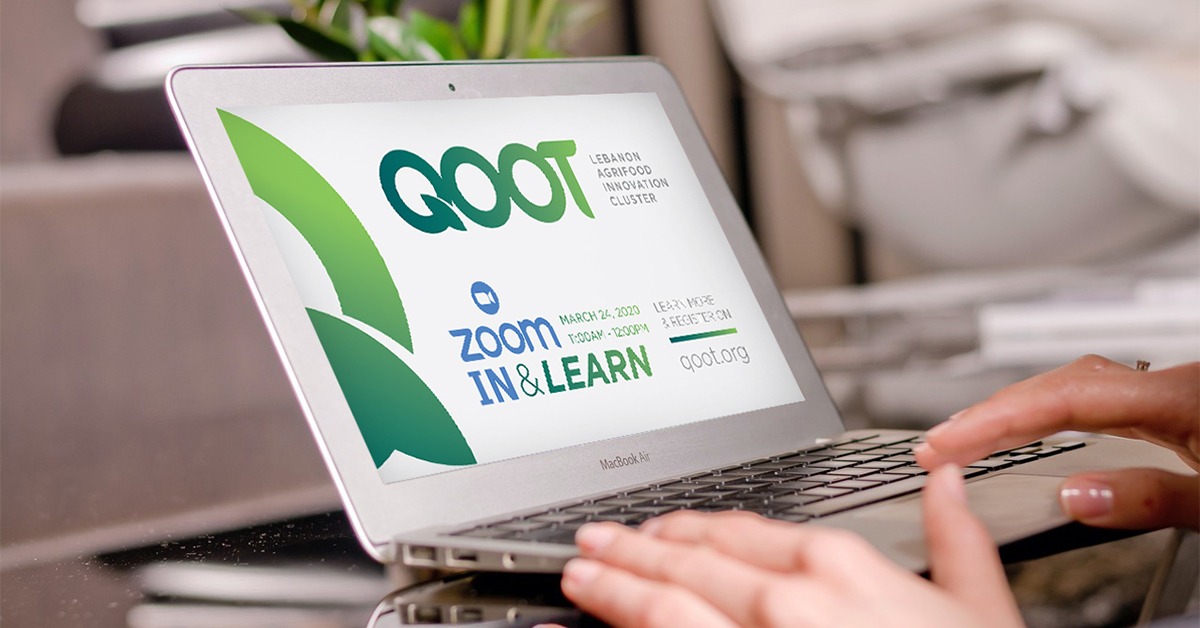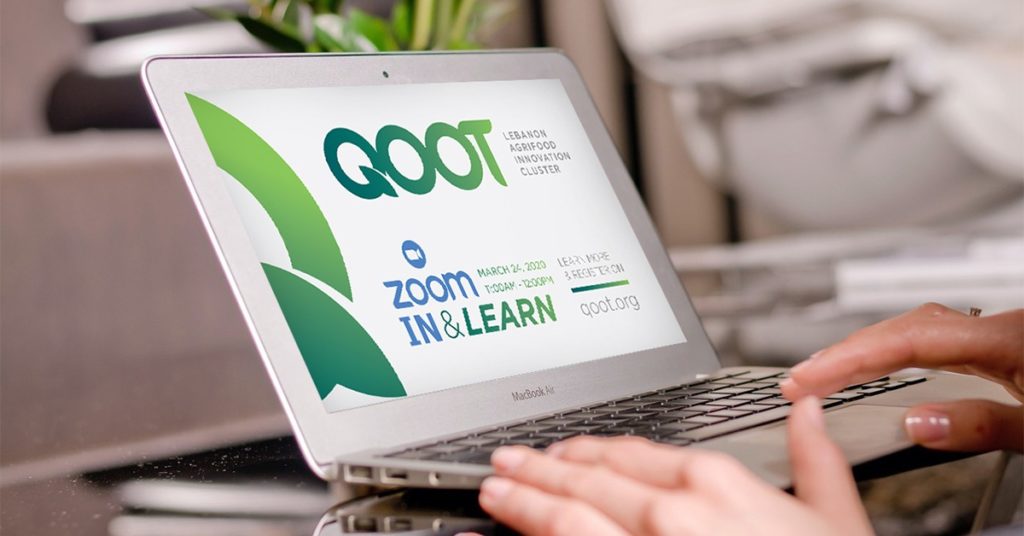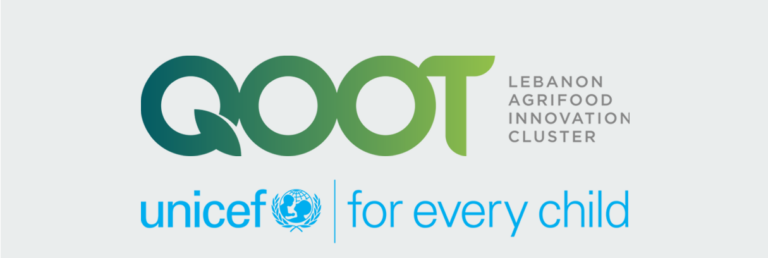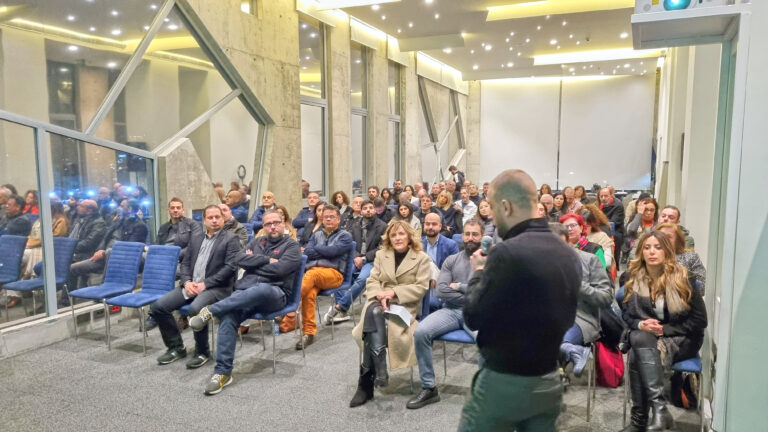
QOOT Cluster brought together Lebanese enterprises and SMEs, knowledge providers and support institutions to learn about joint R&D projects, shedding light on the economy within the current crisis situation. More than 60 professionals joined QOOT Cluster’s Zoom In & Learn webinar to discuss different initiatives, bringing together a collaborative approach in the agri-food sector.
QOOT Cluster’s Crucial Role
Today, more than ever, QOOT Cluster’s role is crucial in being the medium between the different stakeholders in the agri-food sector, and bringing together Academia, Research Centers, and the Private Sector to work and solve common challenges.
Nadine Khoury, President of QOOT Cluster and COO at Robinson Agri, emphasized the importance of the cluster in times of crisis: “When we first launched QOOT Cluster we had in mind two main goals : promoting Lebanon’s agri-food sector by encouraging innovation and sustainability, but also bringing Lebanese agri-food stakeholder together so we can work and develop. That is exactly what a cluster does, helping, supporting, and sharing.”
Stressing on the importance of the agri-food sector in time of crisis, she added: “In addition to health concerns, we should consider the basic necessities such as water, electricity, fuel, Internet… and above all food. Our food security is by far the most critical, we should make sure that our communities are not disrupted by unforeseen events, people should not starve. So, now more than ever we are aware of the role that our cluster must play. It would be impossible to survive unless we collaborate and innovate. As we give tribute to doctors and nurses in hospitals fighting for the life of patients with COVID-19 virus, we should include food suppliers who despite the risk, are working daily to bring food to our plates.”
Industry-academic partnerships: an approach to accelerate innovation
The webinar combined speakers from the professionals and academia, to present and discuss the importance of collaborative strategy to overcome the actual situation in Lebanon. The speakers included Dr. Rabi Mohtar – Dean of the Faculty of Agricultural and Food Sciences (FAFS) at the American University of Beirut, Antoine Abou Samra – Senior Business Consultant of the Euro Lebanese Center for Industrial Modernization (ELCIM) and the Centre for Innovation and Technology (CIT) at the Industrial Research Institute (IRI), and Huda Saigh – Program manager at the European Bank for Reconstruction and Development (EBRD).
Dr. Rabi Mohtar discussed the importance of accelerating innovation through industry-academic partnerships. He insisted on the importance of having an integrated strategy to bring the sector forward, partnering the government, industry, and academia to accelerate innovations and bring the sector forward to reduce resource gaps.
Antoine Abou Samra presented how ELCIM has been providing to help the sector, they have been providing over 350 companies technical assistance, and 600 business assessment missions. ELCIM has been financing support program through the Innovation Voucher Program and ESSP Program.
Moreover, Berytech has partnered with ELCIM to mobilize academia and research institutions to work on commercializing Lebanese intellectual property for the benefit of different sectors and to advance the Knowledge Economy. The goal is to create opportunities for innovators through different pillars including valorizing Lebanese research to commercialization and industry advancement. Four grants of $25,000 each are available through the ACT Smart Innovation Hub for projects innovating in the agri-food or cleantech sector. Read more
Huda Saigh presented the technical assistance opportunities available through EBRD, as they are helping small and medium-sized businesses access the know-how they need to grow. She explained how they can help the agri-food accompanies to support them improve their decision-making, expand to new markets, qualify for new certifications, among others.
The interventions ended with a great exchange, where the different academics and professionals discussed the future steps to strengthen the collaboration between academia and the private sector.





